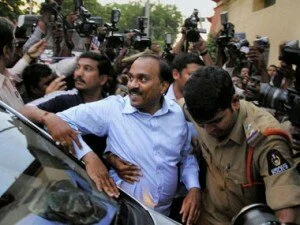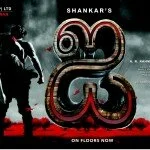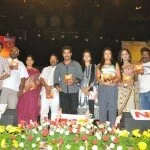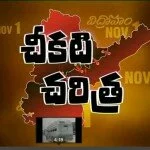Gali Janardhana Reddy: How luck ran out of illegal mining king
The arrest on Monday (5 September 2011) by the Central Bureau of Investigation (CBI) of the kingpin of illegal iron ore mining in Karnataka and Andhra Pradesh, Gali Janardhana Reddy, former Minister for Tourism, Youth Affairs and Infrastructure Development in the BS Yeddyurappa government, has not come a day too soon. His brother-in-law BV Sreenivas Reddy, who is managing director of Obulapuram Mining Company (OMC), a firm controlled by Janardhana Reddy, his brothers and associates, was also arrested.
The arrest comes almost 21 months after a first information report against the company had been lodged by the CBI in December 2009, and testifies to the political clout of the Reddy brothers in both the states.
In fact, Janardhana Reddy, who continues to protest his innocence, had been given more than ample opportunity to remove evidence, cover his tracks and wipe clean any fingerprints that existed. Which is why it is rather surprising that the CBI still managed to reportedly seize more than 30 kg of gold and over Rs 1.5 crore in cash from the premises of the former minister. The only explanation for the seizures could be that the greed of the former minister and his family members knew no bounds.
The time was politically opportune for the arrest. The promoters of privately-owned mining companies in Bellary in Karnataka and in the adjoining Ananthapur district in Andhra Pradesh, who used to fund the activities of political leaders in the past, had become important politicians themselves and, what is more, bankrolled important leaders belonging to the two largest political parties in the country, the Bharatiya Janata Party and the Indian National Congress.
Despite his denials, the proximity of Janardhana Reddy to YS Jaganmohan (‘Jagan’) Reddy— member of Parliament from the Kadapa Lok Sabha constituency in Andhra Pradesh, the richest MP according to his declared assets, and son of the late YS Rajasekhara Reddy, former Chief Minister of Andhra Pradesh—is hardly a secret. Associates of Jagan Reddy and Janardhana Reddy also have business links through a company called Red Gold, which is associated with OMC.
By June this year, the writing on the wall was clear. It became apparent that the ground was slipping under the feet of the notorious Gali Reddy brothers, the principal protagonists responsible for large-scale illegal mining of iron ore in Karnataka and Andhra Pradesh, which is largely exported to China.
Their mentors were deserting them. Sushma Swaraj, Leader of the Opposition in the Lok Sabha, had, in an interview to Outlook weekly on 6 June, sought to distance herself from the brothers and claimed that their rise was on account of their proximity to former chief minister Yeddyurappa and the support given to them by Arun Jaitley, Swaraj’s counterpart in the Rajya Sabha, and perceived as her rival in the party.
 On 27 July, a few days before he retired, Justice N Santosh Hegde, the then Lokayukta (or people’s ombudsman) of Karnataka, presented his final report on illegal mining in Bellary which raised a political storm, not just in the state but in the entire country. The detailed document sought to indict Janardhana Reddy, and refuted his contention that he was not involved in illegal mining in the state. It also alleged that he had laundered money through international tax havens.
On 27 July, a few days before he retired, Justice N Santosh Hegde, the then Lokayukta (or people’s ombudsman) of Karnataka, presented his final report on illegal mining in Bellary which raised a political storm, not just in the state but in the entire country. The detailed document sought to indict Janardhana Reddy, and refuted his contention that he was not involved in illegal mining in the state. It also alleged that he had laundered money through international tax havens.
On 4 August, DV Sadananda Gowda was sworn in as the new Chief Minister of Karnataka and when he constituted his cabinet he not only dropped Janardhana Reddy as minister but his brother Gali Karunakara Reddy, who was Revenue Minister, and the “fourth” of the Gali Reddy brothers, B. Sreeramulu (who was Health Minister, who is a close associate of the Gali Reddy brothers and belonged to the backward Valmiki community) as well. (The least controversial of the three brothers, Gali Somasekhara Reddy, continues as president of the Karnataka Milk Federation.)
Like former chief minister Yeddyurappa, the Gali Reddy brothers came from a humble background and then became fabulously rich. The father of the three Gali Reddy brothers served as a police constable in Cowl Bazar in Bellary. The brothers had started a chit fund business which went under.
Bellary has not only been an important arena of state politics but of national-level politics as well. Important politicians who have chosen to contest parliamentary elections from the constituency include Sushma Swaraj and Sonia Gandhi. The two women had contested elections to the parliamentary constituency of Bellary in 1999, which was won by Sonia Gandhi.
All subsequent (national and state) elections were won by BJP candidates as Bellary ceased to remain a “stronghold” of the Congress party – which it earlier used to be.
For years, it seemed that the Gali Reddy brothers were invincible, that they would never be arrested or apprehended. The political influence of the brothers did not diminish despite allegations—by the Supreme Court-appointed Central Empowered Committee (CEC) besides the Lokayukta—to the effect that state boundaries had been trespassed and that forest laws had been violated during mining operations.
The Reddy brothers and their associates brazenly denied (and continue to deny) these allegations and claim that they do not control any mining leases in Karnataka, even though the brothers and their associates control OMC in neighbouring Andhra Pradesh.
It has been alleged that the Reddy brothers control mining operations in Karnataka through illegal third party links, including “raising contracts” through which their associates extract iron ore out of areas that have been officially leased to other individuals and firms.
Reports prepared by the Indian Bureau of Mines (IBM) under the Union government’s Ministry of Mines as well as by Justice Hegde have indicted the manner in which iron ore mining has taken place in the area in blatant violation of the laws of the land, thereby destroying the livelihoods of local people, degrading the environment in which they live and quickly depleting mineral reserves in a rapacious and unscientific manner.
In November 2009, after the then Chief Minister Yeddyurappa decided to call for a ‘contribution’ of Rs 1,000 from the owners of each truck carrying iron ore out of Bellary for those affected by floods in the state, the Reddy brothers displayed their clout by precipitating a political crisis that threatened the continuance of the state government. The crisis was resolved only after the BJP leadership in New Delhi intervened and after the then chief minister removed one of his ministerial confidantes (Shobha Karandlaje, former minister for Rural Development and Panchayati Raj) and transferred key government officials.
Soon after K Rosaiah became Chief Minister of Andhra Pradesh in September 2009 after YSR’s untimely death in a helicopter crash (the Congress ‘high command’ ignored his son Jaganmohan Reddy’s aspirations to hold the position) Rosaiah announced that the CBI would inquire into allegations of violations of laws by OMC.
Even as legislators were preoccupied with the agitation for a separate state of Telengana carved out of Andhra Pradesh in the second week of December 2009, the CBI conducted search-and-seizure raids on the homes of (and offices controlled by) the Gali Reddy brothers.
The brothers have also been accused of influencing the judiciary. In December 2009, a letter sent by a non-government organisation, the Campaign for Judicial Accountability and Reform (CJAR), to representatives of major political parties seeking their support for impeaching controversial Justice PD Dinakaran, former Chief Justice of the Karnataka High Court, claimed that the judge “has played a major role in helping the mining mafia of the Reddy brothers to continue with rampant illegal mining”.
On 9 July 2010, the Karnataka High Court issued an interim order directing the customs authorities to stop all exports of iron ore by 10 private companies from the ports of Mangalore, Karwar and Belekeri in the state, till an investigation was completed into the disappearance of 500,000 tonnes of iron ore – out of the 700,000 tonnes of ore that were seized in March 2010 at the instance of the then Lokayukta, Justice Hegde.
The ore was transported to the Belekeri port in an allegedly unauthorised manner. Ministers in the Karnataka state government offered unconvincing reasons for the disappearance of the iron ore.
Ten companies had filed a batch of writ petitions in the high court in April 2010 seeking the release of iron ore which had been seized during the raids conducted by government officials on the directions of the Lokayukta. The Deputy Conservator of Forests, Karwar, R Gokul, had appealed to the high court in June 2010 to direct the Commissioner of Customs, Mangalore, not to allow export of iron ore from ports in the state.
Subsequently, Gokul was sought to be suspended from his post by the Karnataka government’s Minister for Ports. This led to Justice Hegde resigning his position on 23 June 2010. He withdrew his resignation a fortnight later after the intervention of, among others, senior BJP leader and former Deputy Prime Minister LK Advani.
On 28 June 2010, the Election Commission issued notices to Karnataka ministers Karunakara Reddy, Janardhana Reddy and Sreeramulu on a complaint by Congress legislator KC Kondaiah, seeking their disqualification for using “political positions to further their business interests”. Kondaiah sent the complaint to Karnataka Governor Hans Raj Bhardwaj.
When the Governor summoned the ministers, they questioned his authority “to act like a court of law”. The Governor then forwarded the complaint to the Election Commission who asked the ministers to respond to the allegation that they are holding offices of profit. The BJP responded to Governor Bhardwaj’s public call for the resignations of the ministers by describing him as an “agent” of the Congress.
In July, 45 MLAs belonging to the opposition Congress party in Karnataka staged a protest inside the state legislative assembly and refused to vacate the premises even at night, demanding a CBI probe into illegal iron ore mining in the state. Yeddyurappa and two of the Reddy brothers came to Delhi on 18 July, met important functionaries in the government and in the BJP.
Thereafter, they stated that there was no evidence on record to indicate the involvement of the Reddy brothers in illegal mining, that they had not misused their public positions to earn personal profits and that they were completely innocent.
Janardhana Reddy claimed he was as “pure as 24-carat gold”. He counter-alleged that the charges against him, his brothers and their associates were drummed up by their political opponents and business rivals. Yeddyurappa also ruled out a CBI inquiry into the allegations of illegal mining in the state while suggesting that exports of iron ore be banned.
With Yeddyurappa out of the way, the CBI has now moved in to finish the job.
source from FIRSTPOST
Category: National News, News, State News
Comments (1)
Trackback URL | Comments RSS Feed




































It’s awesome to pay a quick visit this site and reading the views of all colleagues about this article, while I am also zealous of getting knowledge.